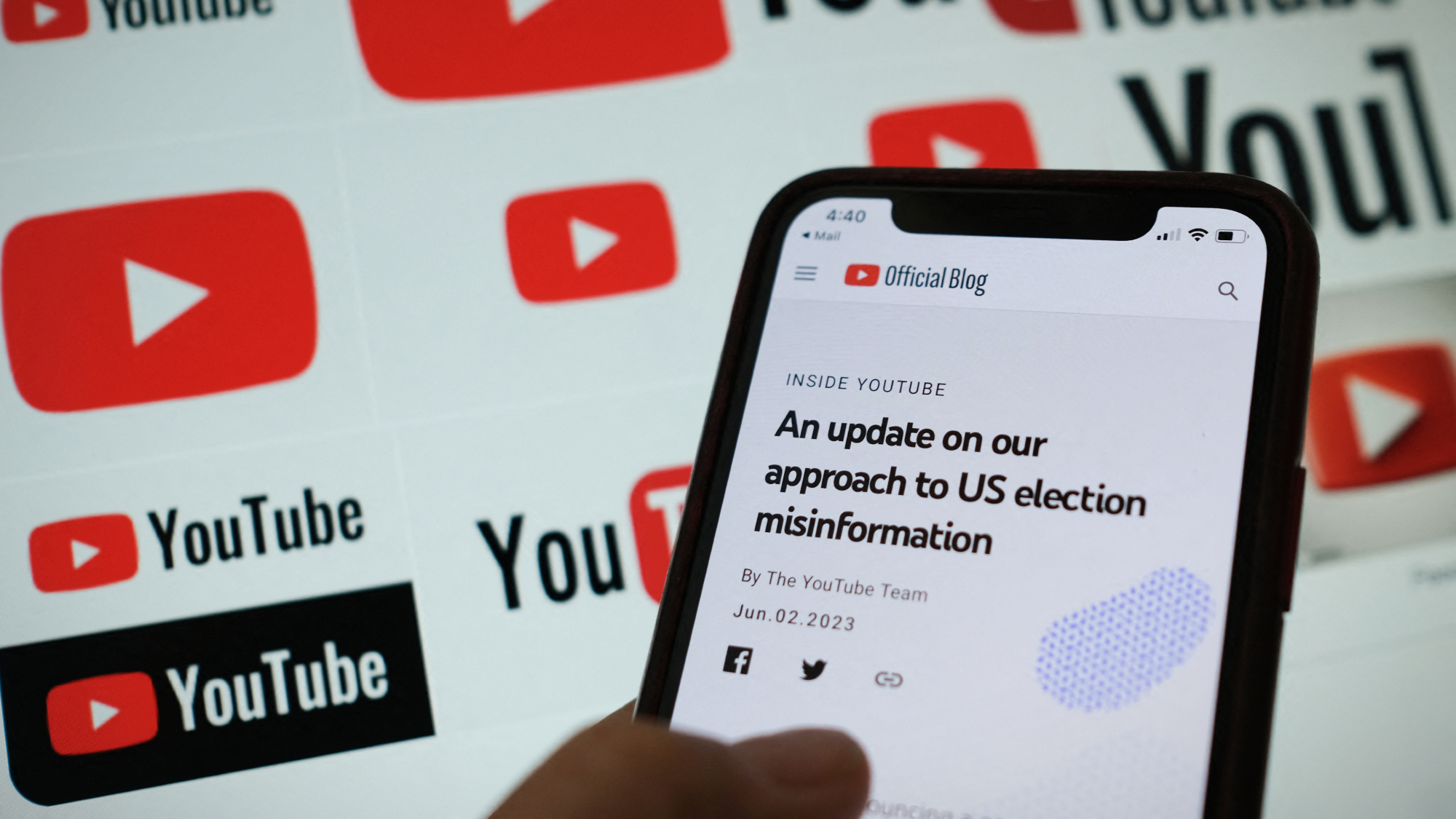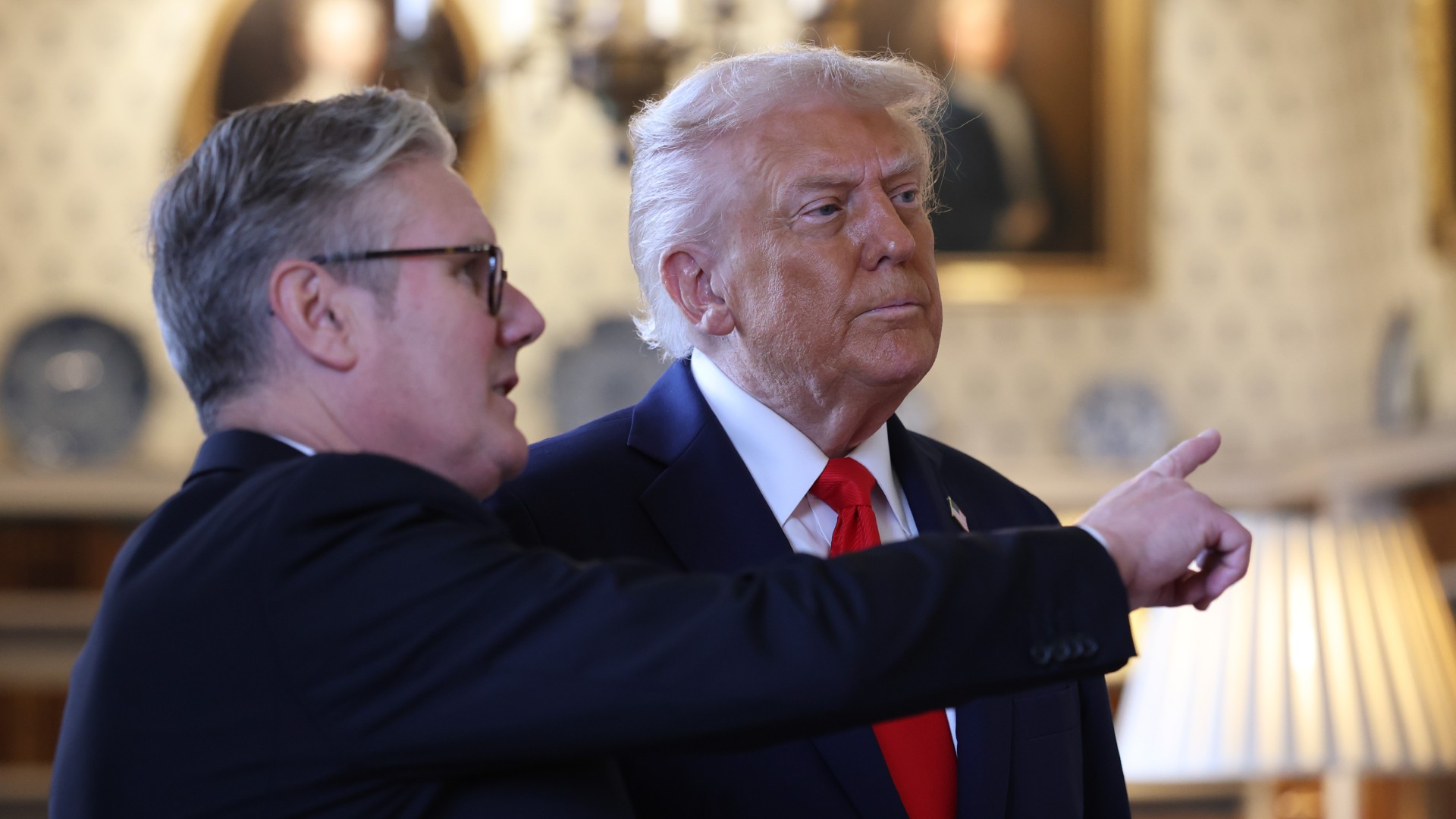How the government is targeting coronavirus misinformation
Dedicated Whitehall unit set up to counter rumours and fake news

A free daily email with the biggest news stories of the day – and the best features from TheWeek.com
You are now subscribed
Your newsletter sign-up was successful
The NHS says it is working with web giants including Google and Facebook on ways to help promote “good advice” and counter misinformation during the coronavirus outbreak.
The health service wants to ensure its guidance about the disease is to appear at the top of internet search results in an attempt to combat myths and rumours about the infection.
As concern over fake news and conspiracy theories grows, searches for “coronavirus” on Google, Facebook and YouTube will now promote information from the health service or the World Health Organization.
The Week
Escape your echo chamber. Get the facts behind the news, plus analysis from multiple perspectives.

Sign up for The Week's Free Newsletters
From our morning news briefing to a weekly Good News Newsletter, get the best of The Week delivered directly to your inbox.
From our morning news briefing to a weekly Good News Newsletter, get the best of The Week delivered directly to your inbox.
The NHS said it had convinced Twitter to delete an account claiming to be a hospital and spreading false information. It is also concerned against homeopaths promoting alternative treatments online.
A dedicated cross-Whitehall unit has been set up to counter coronavirus-related misinformation, including from Russia and China.
The unit is setting out to “identify false information being deliberately spread online and to establish its scope, impact and whether it needs to be actively countered”, The Guardian says.
Oliver Dowden, the culture secretary, said defending the country from misinformation and digital interference was a top priority.
A free daily email with the biggest news stories of the day – and the best features from TheWeek.com
–––––––––––––––––––––––––––––––For a round-up of the most important stories from around the world - and a concise, refreshing and balanced take on the week’s news agenda - try The Week magazine. Get your first six issues for £6–––––––––––––––––––––––––––––––
Health Secretary Matt Hancock said the NHS’s efforts meant the public would receive accurate health information, “which is more crucial than ever as we continue our response to coronavirus”.
Last week a senior US State Department official, Lea Gabrielle, told Congress that Moscow was behind “swarms of online, false personas” spreading coronavirus falsehoods and that the “entire ecosystem of Russian disinformation is at play”.
According to The New York Times, online rumours include the suggestion that Taiwan was covering up virus deaths and that Bill Gates, the Microsoft co-founder who now runs a philanthropic organization, was behind the spread of the virus.
“I see misinformation about the coronavirus everywhere,” said Austin Chiang, a gastroenterologist at Jefferson University Hospital in Philadelphia. “Some people are panicking, and looking to magical cures, and other people are spreading conspiracies.”
However, reports CNN, in China there is “mounting anger” among citizens about what they see as heavy-handed government censorship, with unpleasant truths written off as “rumours” and truth-tellers threatened or handed punishment.
Several conspiracy theories have gained traction online. One such theory proposes that the coronavirus is actually a bio-weapon engineered by the CIA as a way to wage war on China.
Others insist that the UK and US governments introduced the coronavirus as a way to make money from a potential vaccine.
-
 Crisis in Cuba: a ‘golden opportunity’ for Washington?
Crisis in Cuba: a ‘golden opportunity’ for Washington?Talking Point The Trump administration is applying the pressure, and with Latin America swinging to the right, Havana is becoming more ‘politically isolated’
-
 5 thoroughly redacted cartoons about Pam Bondi protecting predators
5 thoroughly redacted cartoons about Pam Bondi protecting predatorsCartoons Artists take on the real victim, types of protection, and more
-
 Palestine Action and the trouble with defining terrorism
Palestine Action and the trouble with defining terrorismIn the Spotlight The issues with proscribing the group ‘became apparent as soon as the police began putting it into practice’
-
 How corrupt is the UK?
How corrupt is the UK?The Explainer Decline in standards ‘risks becoming a defining feature of our political culture’ as Britain falls to lowest ever score on global index
-
 Big-time money squabbles: the conflict over California’s proposed billionaire tax
Big-time money squabbles: the conflict over California’s proposed billionaire taxTalking Points Californians worth more than $1.1 billion would pay a one-time 5% tax
-
 The high street: Britain’s next political battleground?
The high street: Britain’s next political battleground?In the Spotlight Mass closure of shops and influx of organised crime are fuelling voter anger, and offer an opening for Reform UK
-
 Is a Reform-Tory pact becoming more likely?
Is a Reform-Tory pact becoming more likely?Today’s Big Question Nigel Farage’s party is ahead in the polls but still falls well short of a Commons majority, while Conservatives are still losing MPs to Reform
-
 ‘Officials say exporters pay the tariffs, but consumers see the opposite’
‘Officials say exporters pay the tariffs, but consumers see the opposite’Instant Opinion Opinion, comment and editorials of the day
-
 Taking the low road: why the SNP is still standing strong
Taking the low road: why the SNP is still standing strongTalking Point Party is on track for a fifth consecutive victory in May’s Holyrood election, despite controversies and plummeting support
-
 YouTube to pay Trump $22M over Jan. 6 expulsion
YouTube to pay Trump $22M over Jan. 6 expulsionSpeed Read The president accused the company of censorship following the suspension of accounts post-Capitol riot
-
 What is Donald Trump’s visit worth to the UK economy?
What is Donald Trump’s visit worth to the UK economy?In the Spotlight Centrepiece of the president’s trip, business-wise, is a ‘technology partnership’